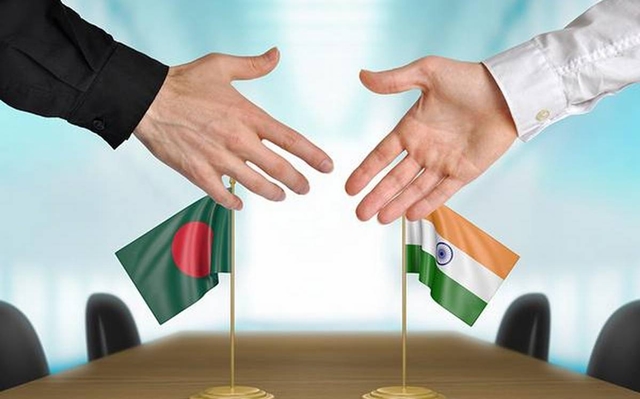SAM
Published:2019-10-07 22:25:41 BdST
Dhaka gets a raw deal from Delhi: Analysts
FT ONLINE
India has failed to reciprocate the generosity shown by Bangladesh, with the prime minister's visit to the neighbouring country yielding little in Dhaka's favour, foreign affairs analysts said on Sunday.
Saying that the deals signed during the visit provided more benefit to India than Bangladesh, they argued that those fell short of people's expectations.
"It seems that there is a big mismatch between what we have given to India and what we have got from them," said Professor Syed Anwar Hossain of Dhaka University".
"We've shown greatness by signing the Feni deal, but in return we have got only assurances regarding the Teesta deal," he said.
"We are giving the water of Feni to provide drinking water to the people of India but what about the fate of the thousands of farmers whose livelihoods are under severe threat due to the lack of water in the Teesta."
The northern part of Bangladesh has become barren as Bangladesh does not get its due share of water through the Teesta, he added.
"India is a big country and they have to show the bigness of their minds too. We are indebted to India and our ties have been forged through the sacrifices of bloods but that does not mean that we will give away all they want and in return we will get nothing," Professor Hossain explained.
He suggested that since Teesta is an international river Bangladesh should go to the international court to settle the water-sharing issue.
Former foreign secretary Touhid Hossain said the signing of the memorandum of understanding, or MoU, on the Feni river seems to be untimely.
While the amount of water is nominal, the people of Bangladesh are "sensitive" about the water issue.
"There has been no progress in the Teesta water-sharing deal, which has been pending for over a decade but the MoU on the Feni River was signed within a very short time. I think people do not take it easy".
The signing of the deal gives the people a feeling: "the deals that cover the interest of India have been signed swiftly, but the accords which would benefit Bangladesh got stuck for a long," he said.
Professor Imtiaz Ahmed of the international relations department of Dhaka University said it appears that though Bangladesh is eager to win the hearts of the people of India, "the Indian government is only interested to have good ties with the government of Bangladesh, not with its people." "The signing of the Feni River deal is an example of that."
Dhaka has signed the treaty without hesitation considering the interest of the people of India, for which Bangladesh deserves to get appreciation, he added.
But the Indian government "is interested to serve the purpose of their people only, not the people of Bangladesh," he said, adding that both sides focused on only the government to government relations.
Dr. Ahmed said the Indian government should have the policy to win the hearts of the people of Bangladesh to have the sustainable benefit of the ties between the two countries.
Bangladesh signed seven bilateral agreements with India, aiming to deepen ties between the neighbouring countries after the bilateral meeting between Prime Minister Sheikh Hasina and her Indian counterpart Narendra Modi on Saturday in New Delhi.
The deals include the MoUs on the establishment of a coastal surveillance system, cooperation in youth affairs, a cultural exchange programme and the withdrawal of 1.82 cusec of water from Feni River by India under a drinking water supply scheme for Tripura.
The agreements on the use of the Chattogram and Mongla ports for the movement of goods to and from India and the renewal of a line of credit committed by New Delhi to Dhaka were also signed along with an MoU between Dhaka University and the University of Hyderabad.
Unauthorized use or reproduction of The Finance Today content for commercial purposes is strictly prohibited.


